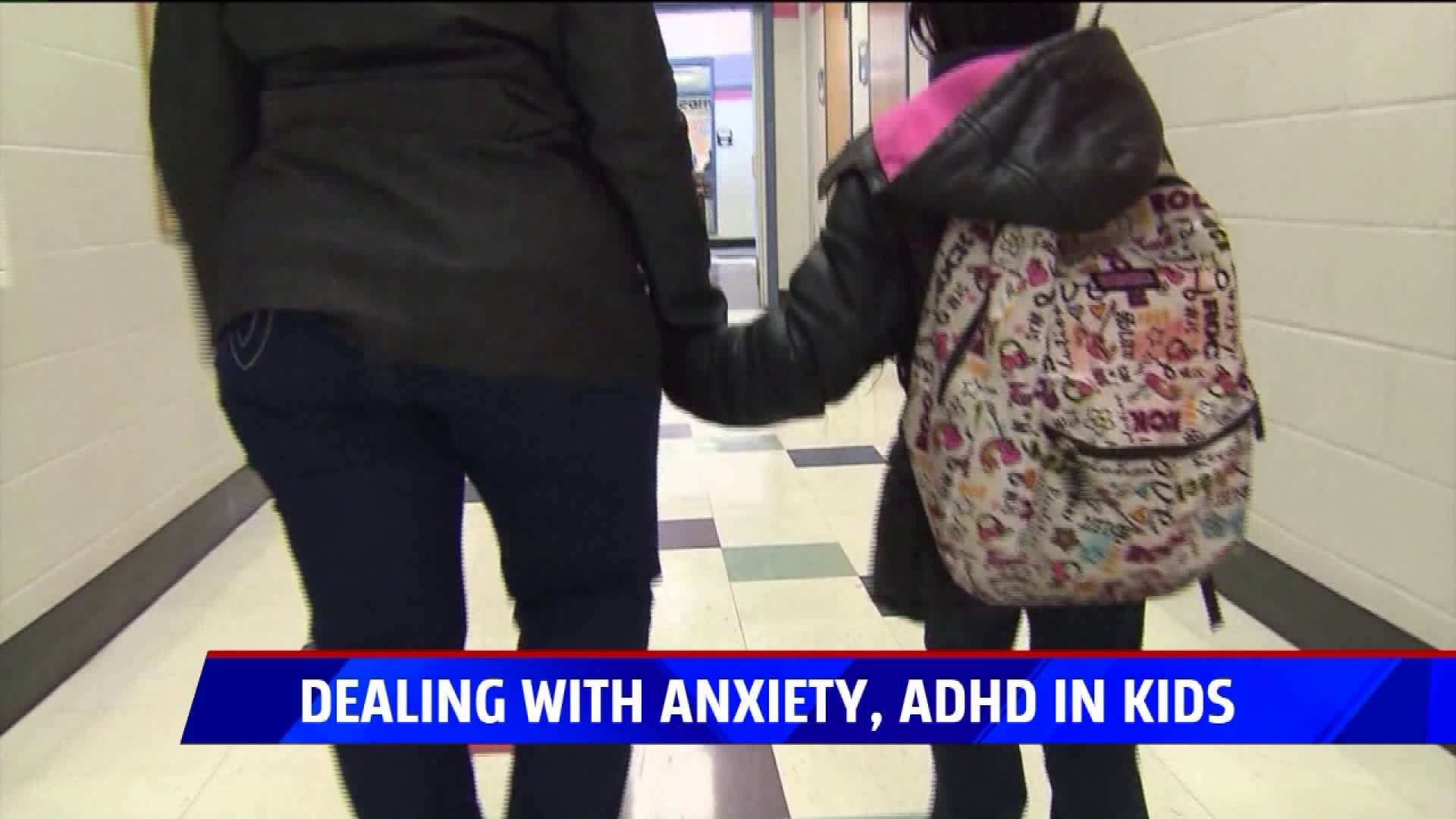Understanding The Surge In Young Adult ADHD Cases At AIIMS

Table of Contents
Increased Awareness and Diagnostic Capabilities at AIIMS
One of the key reasons behind the observed increase in ADHD diagnoses at AIIMS is the improvement in diagnostic tools and increased awareness campaigns. AIIMS, with its extensive resources and expertise, plays a vital role in educating both healthcare professionals and the public about ADHD symptoms and diagnosis. This enhanced understanding leads to earlier identification and more accurate diagnoses.
- Improved screening methods: AIIMS utilizes advanced assessment tools and techniques, allowing for more precise identification of ADHD even in individuals with subtle symptoms.
- Increased access to specialized ADHD clinics within AIIMS: The establishment of dedicated clinics provides easier access to comprehensive evaluations and treatment plans.
- Training programs for healthcare professionals on ADHD identification: AIIMS conducts regular training programs to equip healthcare professionals with the knowledge and skills necessary to accurately diagnose ADHD.
- Public awareness initiatives conducted by AIIMS: Through various campaigns and educational materials, AIIMS raises public awareness about ADHD symptoms, reducing stigma and encouraging early intervention.
Impact of Societal Changes and Stress on Young Adults
Modern society presents unique challenges that may contribute to the manifestation of ADHD symptoms in young adults. The pressures of academic life, the pervasive influence of social media, and economic uncertainty can significantly impact mental well-being and potentially exacerbate ADHD symptoms.
- Increased academic competition and pressure: The highly competitive academic environment can create significant stress and overwhelm individuals predisposed to ADHD.
- Impact of social media and constant connectivity: The constant stimulation and distractions offered by social media may negatively affect attention span and focus in individuals with ADHD.
- Economic instability and its effect on mental health: Financial anxieties and uncertainties can add to existing stressors, potentially worsening ADHD symptoms.
- Changes in lifestyle and sleep patterns: Irregular sleep patterns, poor diet, and a lack of physical activity common in modern lifestyles can negatively impact the brain's executive functions, potentially contributing to ADHD symptoms.
Challenges in Diagnosis and Treatment of ADHD in Young Adults
Diagnosing ADHD, particularly in young adults, presents unique challenges. Symptoms often overlap with other conditions like anxiety and depression, making differential diagnosis crucial. Furthermore, access to timely and appropriate treatment can be difficult, even at institutions like AIIMS.
- Differential diagnosis from other conditions (anxiety, depression): ADHD symptoms frequently coexist with other mental health conditions, requiring careful assessment to differentiate between them.
- Challenges in accessing timely and appropriate treatment: Long waiting lists, geographical limitations, and the cost of treatment can hinder access to necessary care.
- Stigma associated with ADHD and its impact on seeking help: The stigma surrounding ADHD can prevent individuals from seeking help, delaying diagnosis and treatment.
- The role of AIIMS in providing comprehensive treatment plans: AIIMS strives to provide comprehensive treatment plans that include medication management, behavioral therapy, and educational support.
Future Directions and Research at AIIMS
AIIMS is actively involved in ongoing research related to ADHD in young adults. This research encompasses various aspects, including the exploration of underlying causes, the effectiveness of different treatments, and the long-term effects of ADHD.
- Ongoing research into the genetic and environmental factors contributing to ADHD: AIIMS researchers are investigating the complex interplay of genetic predisposition and environmental influences in the development of ADHD.
- Studies exploring the effectiveness of different treatment modalities: AIIMS evaluates the efficacy of various treatment approaches, including medication, therapy, and lifestyle interventions.
- AIIMS's role in developing new therapeutic interventions: Researchers are working towards developing innovative therapeutic strategies to improve ADHD treatment outcomes.
- Future research directions and collaborations: AIIMS is actively seeking collaborations and exploring new avenues for research to better understand and treat ADHD in young adults.
Understanding the Surge in Young Adult ADHD Cases at AIIMS – A Call to Action
In conclusion, the increase in ADHD diagnoses among young adults at AIIMS reflects a complex interplay of factors: improved awareness and diagnostic capabilities, the impact of societal changes and increased stress, challenges in diagnosis and treatment, and the ongoing research efforts at AIIMS. Addressing this surge requires a multi-pronged approach involving increased awareness, improved access to care, and ongoing research. If you suspect you or someone you know may have ADHD, seek professional help. Learn more about understanding ADHD in young adults and AIIMS ADHD research by visiting the AIIMS website or contacting a mental health professional. Effective management of ADHD symptoms is possible with early intervention and appropriate support. Don't hesitate to take the first step towards better mental well-being.

Featured Posts
-
 How Trumps China Tariffs Led To Higher Prices And Potential Shortages In The Us
Apr 29, 2025
How Trumps China Tariffs Led To Higher Prices And Potential Shortages In The Us
Apr 29, 2025 -
 Get Your Tickets Willie Nelsons 4th Of July Picnic Texas
Apr 29, 2025
Get Your Tickets Willie Nelsons 4th Of July Picnic Texas
Apr 29, 2025 -
 Open Thread February 16 2025 Latest News And Updates
Apr 29, 2025
Open Thread February 16 2025 Latest News And Updates
Apr 29, 2025 -
 Wildfire Betting A Reflection Of Our Times Examining The Los Angeles Case
Apr 29, 2025
Wildfire Betting A Reflection Of Our Times Examining The Los Angeles Case
Apr 29, 2025 -
 Get Capital Summertime Ball 2025 Tickets Official Sales And Resale Options
Apr 29, 2025
Get Capital Summertime Ball 2025 Tickets Official Sales And Resale Options
Apr 29, 2025
Latest Posts
-
 Razyasnenie Prichiny Otsutstviya Trampa Ryadom S Zelenskim
Apr 30, 2025
Razyasnenie Prichiny Otsutstviya Trampa Ryadom S Zelenskim
Apr 30, 2025 -
 Patriotismos Kai Dasmoi I Ekklisi Toy Galloy Ypoyrgoy Oikonomias Stis Gallikes Epixeiriseis
Apr 30, 2025
Patriotismos Kai Dasmoi I Ekklisi Toy Galloy Ypoyrgoy Oikonomias Stis Gallikes Epixeiriseis
Apr 30, 2025 -
 Pokhorony Papy Rimskogo Tramp Mozhet Vstretitsya S Zelenskim
Apr 30, 2025
Pokhorony Papy Rimskogo Tramp Mozhet Vstretitsya S Zelenskim
Apr 30, 2025 -
 Gallia I Apantisi Stoys Dasmoys Tramp Mia Ekklisi Gia Ethniko Patriotismo
Apr 30, 2025
Gallia I Apantisi Stoys Dasmoys Tramp Mia Ekklisi Gia Ethniko Patriotismo
Apr 30, 2025 -
 Pochemu Tramp I Zelenskiy Sideli Razdelno Razgadka Tayny Vstrechi
Apr 30, 2025
Pochemu Tramp I Zelenskiy Sideli Razdelno Razgadka Tayny Vstrechi
Apr 30, 2025
